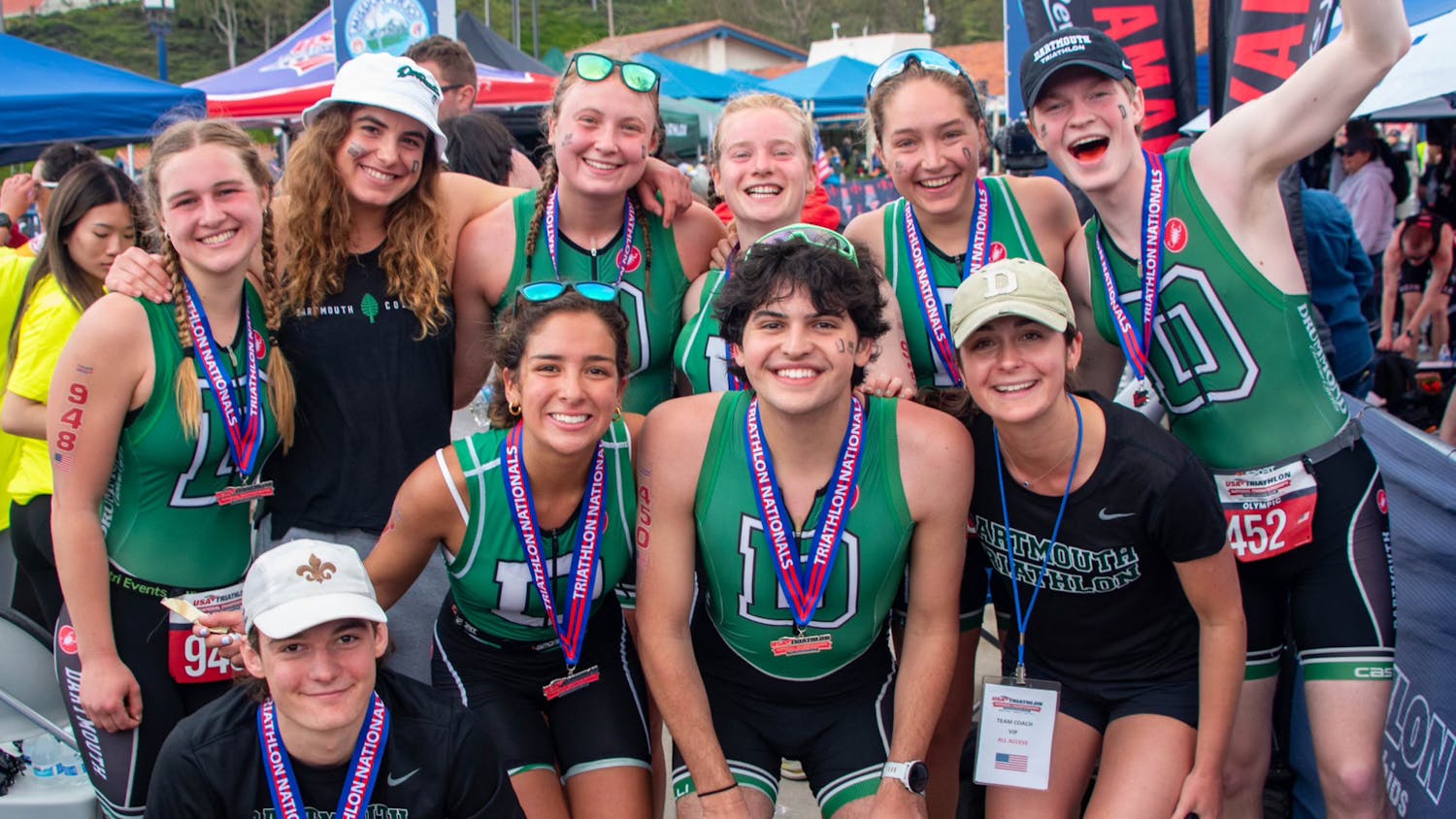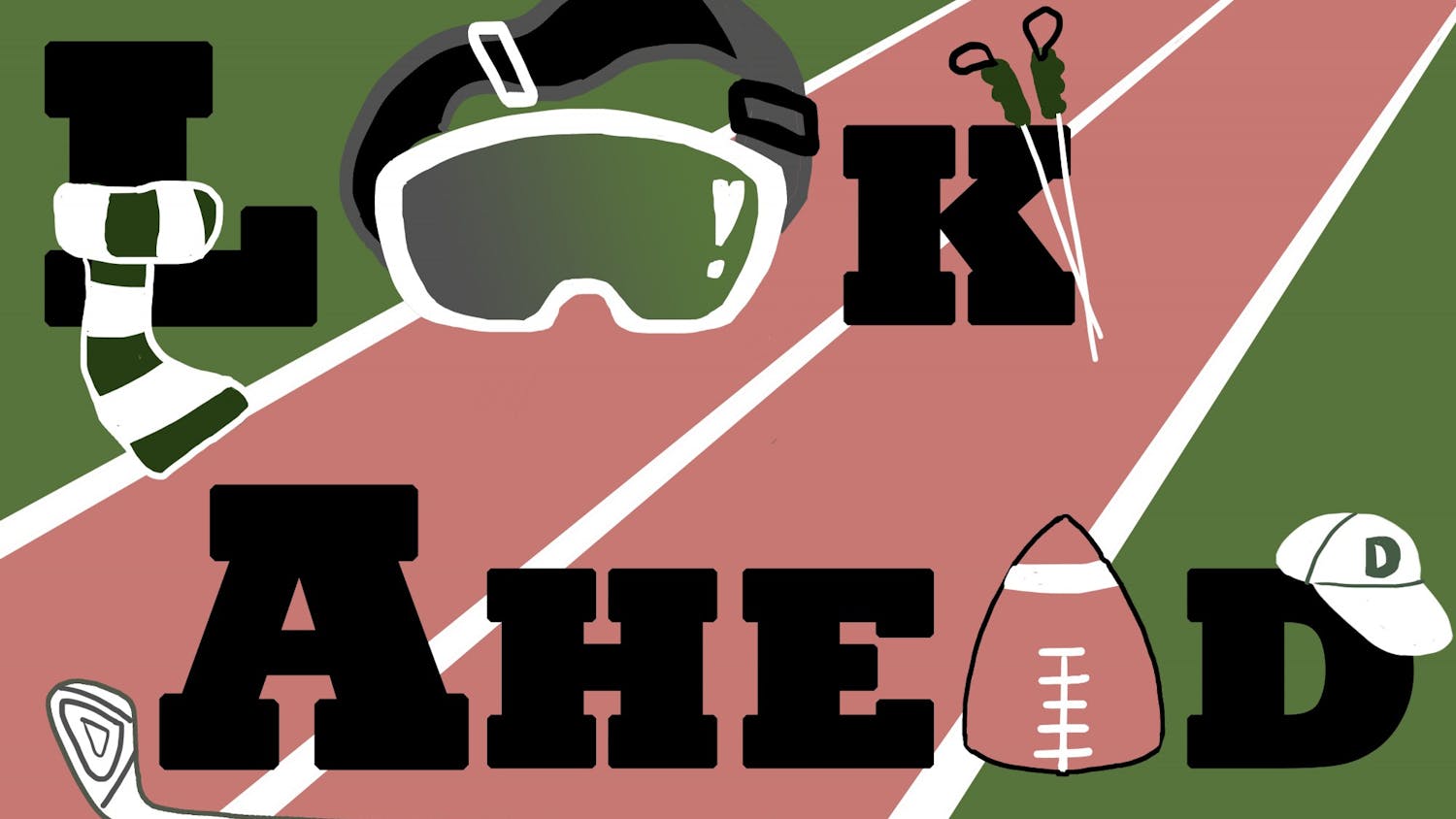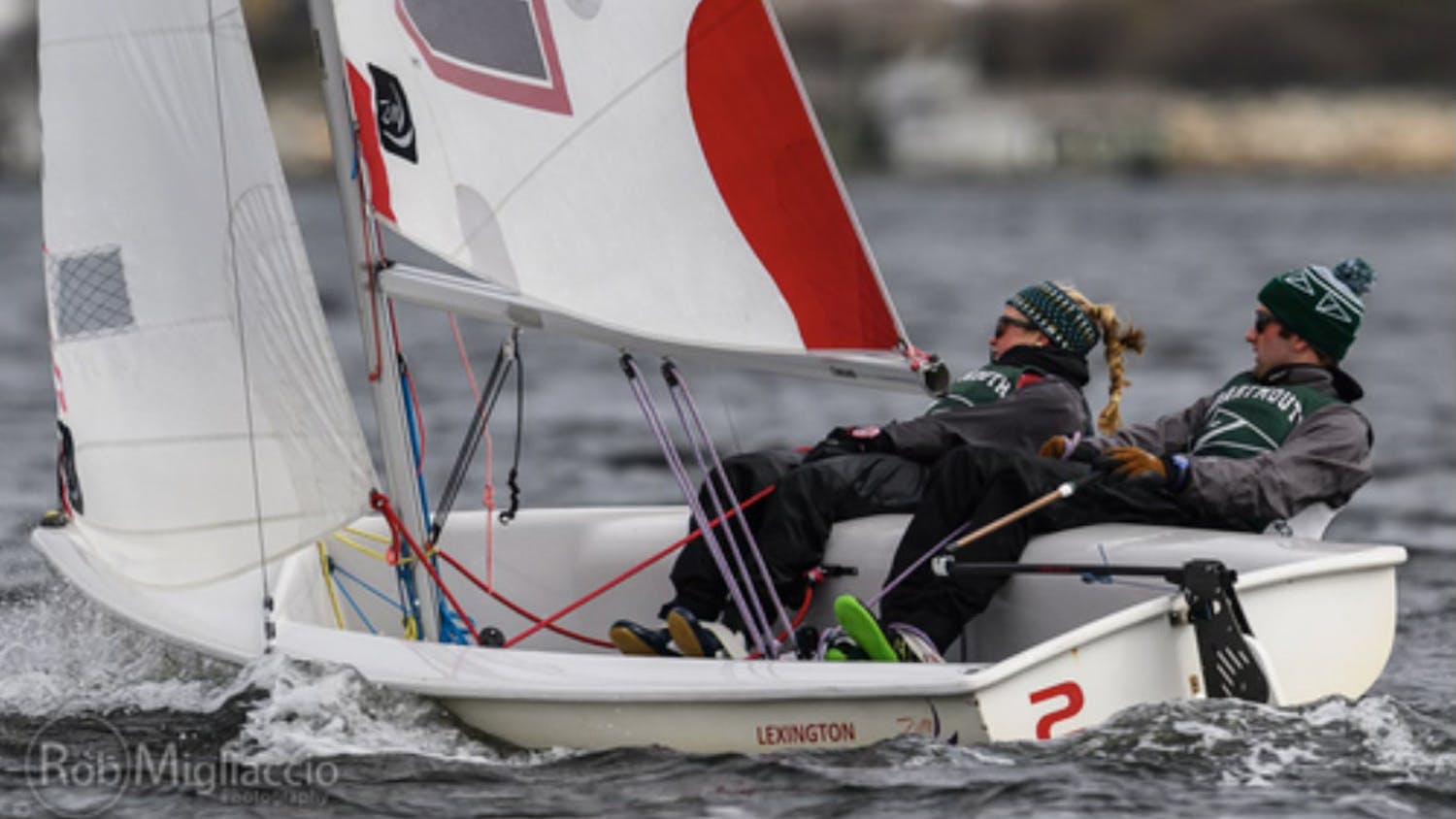In less than a month after leading the men’s basketball team to its highest win total since 1999, Alex Mitola ’16 has chosen to transfer out of the program and graduate early at the end of this spring term. The reigning two-time team most valuable player and second-team All-Ivy League member had asserted himself as one of the top players in the Ivy League, but now is in the midst of deciding between several potential programs to both further his collegiate basketball career in his final year of eligibility and pursue graduate school work.
“I can’t really say, ‘This is the reason why I did it,’” Mitola said. “I think there were a ton of little factors that led me to believe that this was the best decision, for me and my future. One of those being possibly playing at a higher level...I wanted to stay for a ton of reasons, and I thought in some ways it was best for me to leave also.”
Mitola will be graduating in a few months, attaining an economics degree in only three years. In conjunction with playing at a new college basketball program, he will also further his academic studies by entering a Masters of Business Administration.
“I’m graduating, [but] I don’t really look at it as I’m leaving,” Mitola said. “I can understand how people who aren’t as informed or just hear about the story may look at it that way...I’m going to be rooting for the team, and it’s not like a disgruntled kid leaving.”
When the news first broke of Mitola’s transfer, head coach Paul Cormier told The Valley News that the decision “floored me,” and that it was “a total surprise.” Yet, while it was not Mitola’s plan when he first stepped foot on campus, the athlete affirmed that he had discussed the option of potentially transferring not long ago.
“I can get how he was surprised, but at the same time, at some level, he should have not been floored,” Mitola said. “It wasn’t like three years went by, and, [I said] ‘hey coach, I’m out of here.’ It’s not how it went down at all.”
Mitola said he had spoken with Cormier after his sophomore summer and told the coach that he was pursuing early graduation as an option but would decide whether or not it was to his advantage to do so.
Concerning the story by The Valley News, Mitola also expressed that he was troubled with how the reporter, Tris Wykes, presented the situation.
“Basically he made it look like I was leaving for not really good reasons, and I thought I was able to convey to him that it was an opportunity that came up,” Mitola said. “It was really difficult to take because I like Dartmouth and I care about my teammates.”
Looking back at his time at the College, Mitola noted that it was easier to make his final decision on whether or not to graduate early and play for another program with the knowledge that he was leaving Big Green basketball in a better place than it was when he arrived on campus.
For the three years prior to Mitola’s class’ taking the court, the men’s team garnered only five wins each season. This past year saw the team go 14-15 overall and 7-7 in the Ivy League, including a four-game winning streak to finish the regular season. Mitola and his teammates also helped to bring the Big Green to its first postseason tournament in 56 years.
“I can look back and say, ‘We did help turn the program around, my teammates, myself [and the] coach,’ and I hope that Dartmouth is able to continue that,” he said. “I’m proud of that, and I know...with me not staying next year that Dartmouth basketball is going to be in good hands.”
While the decision to leave the team may have come as a shock to some in the world of Big Green athletics, athletic director Harry Sheehy noted that there are no bad feelings aimed at Mitola. Sheehy, like Mitola, noted the improvement the program has seen in recent years, thanks in large part to Mitola’s skills on the court.
“I feel like he’s given a lot to our program,” Sheehy said. “I have no ill will, I hope he goes and has a good year, gets a graduate degree started, lands some place where he’s going to be happy with the next phase of his basketball career. [I] appreciate all the hard work and dedication he’s put into our program.”
Asked about how he viewed the transfer after only his first year for the Big Green, Miles Wright ’18 said that “in life, you’ve got to do what’s best for you sometimes. He’s a good friend of mine, I respect his decision. He’s just following his dreams like everyone else is doing.”
In general and in more recent years, transfers by student-athletes have been far from common occurrences at the College.
“This is the first one that I’m aware of,” Sheehy, who has worked at the College for five years, said. “I have not run into it since I’ve been here, so this is the first time, and particularly in a high profile sport where you know what’s going on and you recognize what’s going on.”
In what proved to be Mitola’s final season with the Big Green, the guard helped end the longest postseason tournament drought in the Ivy League for Dartmouth through its participation in the CollegeInsider.com Tournament one month ago.
Perhaps the most enticing aspect of Mitola’s game for potential schools is his prolific three-point shooting. In a sport that has increasingly prized long-ranging shooting as a matter of greater scoring efficiency and a means of crucially spacing the floor, Mitola stands out on the hardwood for his superb three-point stroke. The outgoing junior ranked in the top three of the Ivy League in both three-point field goals made and attempted during his junior and freshman seasons, and in the top six for both categories in his sophomore year. In his three seasons playing for the Big Green, Mitola averaged 2.4 threes per game at a .390 clip.
His three-point prowess, however, should not give the impression of one-dimensionality on the court. Mitola also relied on his strong ability to drive to the hoop and distribute. This year, he fell in the top 10 in total assists among conference players and was in the top 17 in each of his three seasons. His 10.1 turnover percentage — an estimate of turnovers per 100 plays — was the third lowest in the Ivy League this season and indicates his caution and vigilance with the ball in his hands.
In his best season and most recent season, Mitola ranked second in the Ivy League in offensive rating with 114.8, which measures points produced per 100 possessions, and landed in the top nine in this measurement for Ivy Leaguers in each of his three seasons for the Big Green. His stellar 2014-15 campaign also saw Mitola come in at fifth in the conference in offensive win shares with 2.3,, which attributes team success to individual performance in quantifying offensive productivity. Across three seasons Mitola averaged 11.8 points per game, culminating in a seventh-best in the League 12.4 points per game average this past season.
Alex Kline, a college basketball reporter who writes for The Recruit Scoop as part of Rivals.com on Yahoo Sports, confirmed in an email that the following schools are in the mix for Mitola: Vanderbilt, Temple, La Salle, George Washington, Belmont, Binghamton, Fairleigh Dickinson and Fairfield Universities, Canisius and Iona Colleges and Miami University of Ohio.
“I still think it’s really early for me to have an idea of where I want to go,” Mitola said. “I tentatively have scheduled that I’m going to visit George Washington and La Salle sometime soon, but a new school may call tomorrow that I really might really want to visit.
While Mitola may be in talks with a number of schools that are interested in his abilities, Kline said that the athlete has the ability to choose between almost any school that is interested in him.
“He can play anywhere in my opinion,” Kline said. “Shooting is needed, and while he may be a liability on defense, he can certainly be a role player for a pretty good team.”
Where Mitola will ultimately end up is still in the air, but there are several factors he’s taking into consideration when making the final decision. In addition to the school’s basketball program and offerings in potential graduate studies, Mitola wouldn’t mind teaming up with Jaren Sina, a teammate of his from high school who’s transferring Seton Hall University.
“We’re good friends and now that we’re going through this process together we’ve been in constant communication,” Mitola said about Sina. “Some schools have reached out to us of possibly going somewhere together, [so] that’s another factor I have to consider in choosing a school.”
In terms of a scenario he envisions for himself, Mitola hopes to assume a significant role in another program. Opportunities to grow as a player and face sterner competition, potentially on stage where he will also garner greater exposure, will influence his decision.
“Ideally, I want to go to a team where I’m going to be an important part of the team, whatever that may be, and that it’s a winning team and has a good chance of making postseason play,” Mitola said. “[For] a lot of kids, including myself, growing up, you want to play in the NCAA tournament. Some schools that are pretty good matches to get into the [tournament] next year have recruited me a little bit, and that is a factor [in] that I would like to go to a situation where there’s a good chance that we make it.”
Mitola has considered both the option of either thrusting himself immediately into action, or waiting a year to acclimate himself to then resume play in the 2016-17 season. The choice will depend more onthe school to which he transfers, but Mitola sees value in both paths.
“I’d say the majority of the schools are looking for me to play next year, but there are some that would have me sit out and play the following year,” he said. “Again, I think it’s more based on each specific school, than to just ‘I’d rather play this year or this year,’ but I’m open to both.”
At a much broader level in the college basketball world, Mitola’s decision follows a growing trend of player transfers in recent years. This increase saw transfers reach their highest total last offseason with more than 700 players on the move. By mid-April this offseason, the total has already surpassed 450.
In the Ivy League alone, six players in addition to Mitola are planning to transfer, with Cornell’s Shonn Miller among the most highly touted transfers in the country. These players are leaving their respective schools having graduated and must pursue their remaining year of NCAA eligibility — available due to a season lost to injury or status as a junior — elsewhere.
Unlike other schools, Ivies prohibit enrollment in graduate school as a way of continuing athletic careers. As a result, other universities can take advantage of the NCAA’s graduate transfer rule to take a low-risk chance on an already developed player. The rule states that a college-athlete can resume his or her playing career in the immediate season after transferring, as long as the player graduates with at least a bachelor’s degree and has at least one season of competition left.
“In most cases I don’t love this graduate rule, where you can go somewhere else and play right away,” Jeff Goodman, of ESPN college basketball insider, said. “A lot of kids aren’t doing it for academic reasons, but it’s hard to look at a kid in the Ivy League and penalize him. From the sounds of it, [Mitola] could be a role player, a good piece at a higher level school.”
Goodman spoke of some of the advantages that come with recruiting graduate athletes.
“I’m going to take a fifth-year guy because it’s not going to prohibit me from recruiting anybody else in the next class,” Goodman said. “All he does is come in for eight months, he’s a veteran. At worst case scenario, he’s a good practice player, the average is he’s a good role guy, and maybe we hit it.”
Mitola’s departure does not necessarily leave the Big Green’s prospects bleak for next season. Despite losing one of the best players in the Ivy League, Sheehy expressed confidence in the foundation that has been set for the program moving forward.
“The way I would think of it if I was them, he’s not going to be there, it would be the same if he came back and he blew his knee out,” Sheehy said. “Then he wouldn’t be with us, he wouldn’t be able to play, and those things happen, those are lightning bolts that happen to every team… We can sit around and wallow in it, or we can say, ‘let’s go,’ move forward.”
Wright echoed that sentiment, saying that the team’s focus is not on the fact that Mitola is leaving.
“We’re looking forward to next season,” Wright said. “There [are] plenty of players coming back. Everyone is ready to go. We’ve been working out all spring, ready to get after it next season.
Gabas Maldunas ’15, who just finished his last season with the Big Green last month, expressed similar enthusiasm for the future of the team.
“A lot of minutes just opened up, and more guys will have a chance to step-up with three starters leaving right now,” Maldunas said. “I feel like they will be fine. Miles Wright just won the Rookie of the Year award, he’s going into his sophomore year, he has a great mentality. [Connor Boehm ’16], [Tommy Carpenter ’16] and [Malik Gill ’16]. those four will be successful in the league, and they will be able to keep moving forward rather than just keep thinking about [Mitola] and how the season could have gone with him.”
Dartmouth basketball head coach Paul Cormier was not available for comment for this story.
Ray Lu contributed reporting to this story.



